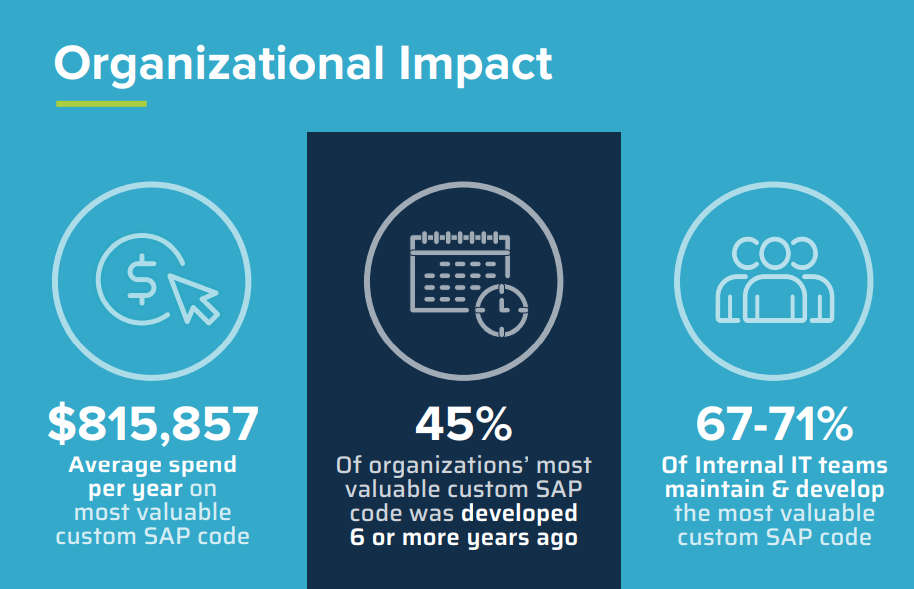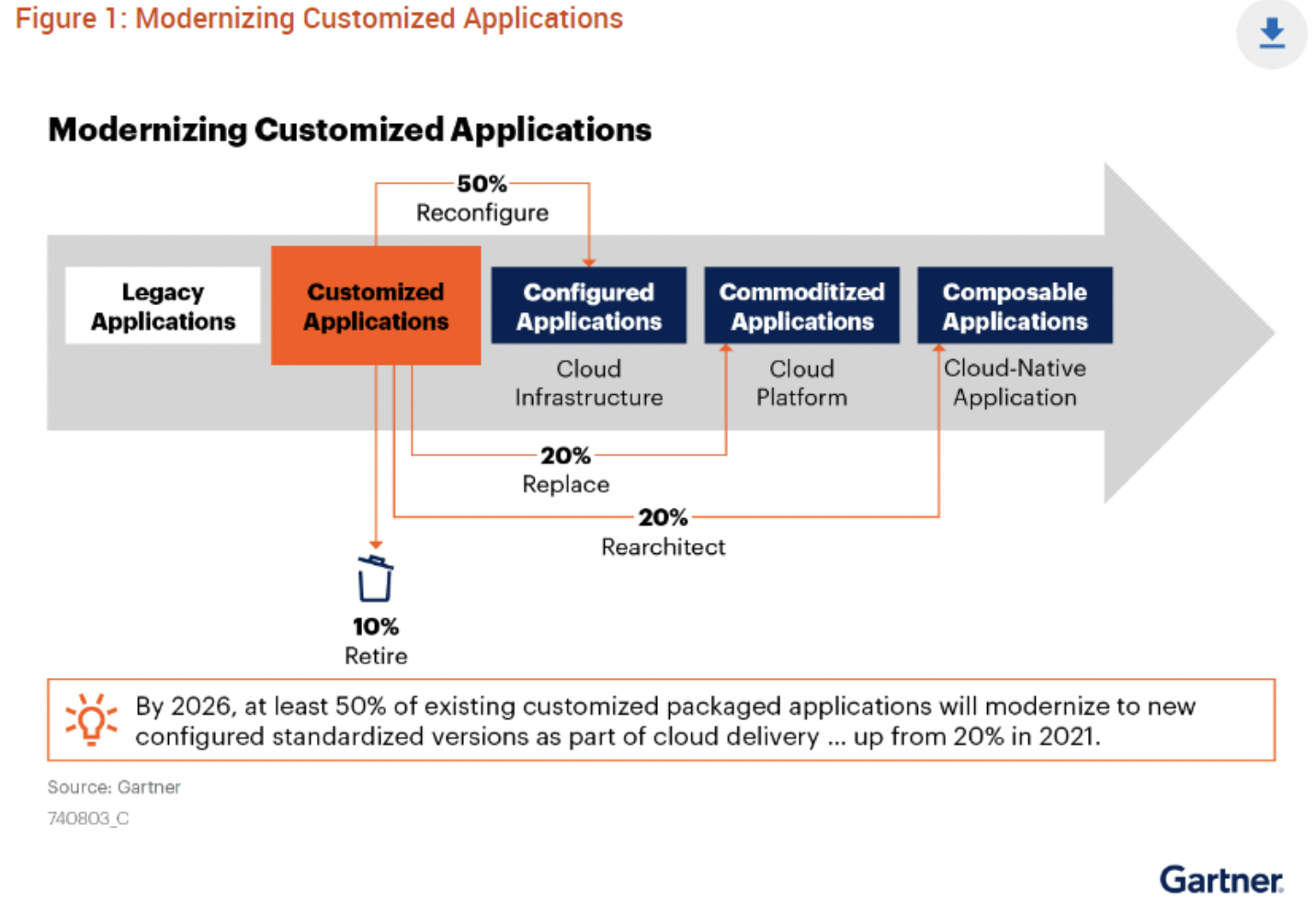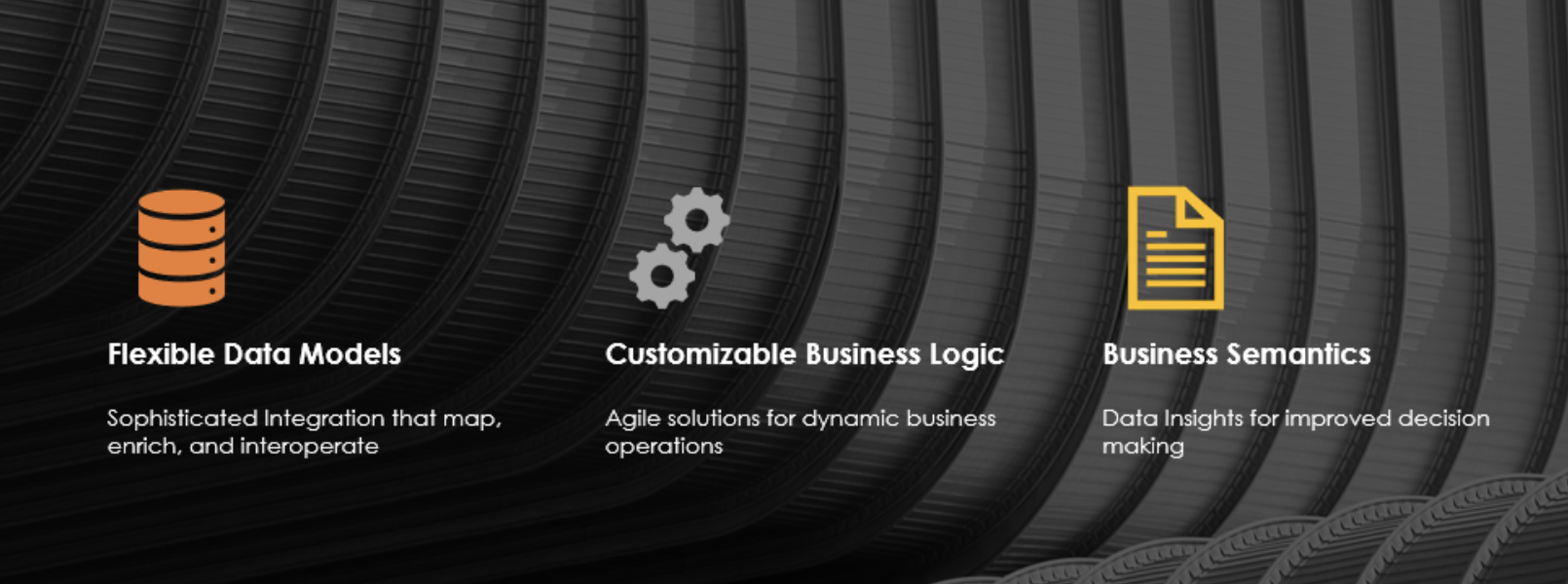Blog
Custom Code – An innovation blocker?
No two organizations have the same business processes, implement vendor products the same way, or have the same plans for customizing, maintaining, and modernizing those applications.
Details
Company Name: UCBOS, Inc.
Bio: UCBOS, Inc. is a USA-based No-Code Software firm helping enterprises achieve strategic business advantage through a 100% Configurable Supply Chain Platform that delivers business outcomes 10x faster.
Its vision is to help enterprises self-learn, adapt, and achieve ontology-driven interoperability using dynamic business data models and rapidly gain supply chain clarity, customer promise reliability, and business agility.
The American SAP User Group (ASUG) conducted market research with SAP customers about the impact of “custom code” on innovation.
* Source: “SAP Custom Code and Digital Transformation,” Research by ASUG and Pillir, 2021
Customizations are inevitable, and reasons vary from a regulatory perspective, localizations, geographics, unique business processes, and competitive advantages. They undoubtedly add value to the business processes, are a core component of the customer experience journey, and are the driving force behind digital transformation initiatives.
At the same time, customizations have an impact on innovation in the following ways:
- Custom code hinders future upgrades and migration into newer technologies
- Custom code increases the maintenance cost, cost of ownership, and the overall IT burden
- Custom code deserves strong expertise (all-rounder) to maintain existing code and keep up with continuous enhancements
- Custom code possesses security risks as it is not easy to govern best practices
Manhattan released Cloud Supply Chain Suite – aka Active back in May 2020. However, despite the strong customer base and rich cloud functionalities, customer adoption is slow. Manhattan is known for its product portfolio in Iseries (AS400) and Open systems, where most retailers, consumer goods, and apparel giants are locked in older versions – Custom Code is the foremost reason.
Again, Oracle promotes Cloud SaaS SCM solutions that enable modern best practices. It is estimated that ~9000+ viable customers are in the On-Prem Oracle E-Business Suite, but assessing upgrade/co-existence options to innovate and modernize their business processes for the new normal. In the case of Oracle, on-prem customers are either choosing the lift and shift approach, which is moving Oracle EBS from their in-house infrastructure to hosting on the Oracle Cloud Infrastructure, adopting a complete transformation of EBS to Oracle Cloud suite, or allowing EBS to co-exist with Cloud by bringing in required modules from the Oracle Cloud suite. Customization footprint within EBS often acts as a hindrance to go ahead with a complete transformation to Cloud. Oracle has its own native PaaS platform to enable extensions of Oracle Cloud Suite feature functions to meet the business specific/custom requirements of the customers on Oracle Cloud suite of products. But this is a significant additional investment the customers need to make on top of the Oracle Cloud modules’ license cost.
We need a common ground to enable custom code without impacting future migration and upgrades. Gartner recommends composable applications (aka Low/No-Code platforms) to overcome the hurdles.
Enhancing the SaaS applications, especially Supply Chain applications, is a time and resource-consuming project, be it integration extensions, custom enhancements for product gaps, or evolving business cases.
Henceforth, there is a definite need for custom code as it A) supports unique or ever-changing business processes B) helps build a secret sauce for competitive advantage. Therefore, we need a strong alternative player to meet this need.
Enterprises must consider feature-rich Low/No-Code platforms that can handle Supply Chain Problem statements typically solved through custom code.
Custom Code in Supply Chain Modules involves
- Carrier Level Receiving / Content-less Receiving
- Just-in-Time Pre-Receiving Analysis and Feed for WMS Cross Docking
- Rule-Based Pre-Receiving Pallet and LPN Orchestrations
- Robust Inbound Audit Engines
- Warehouse Control UIs, Orchestrations, and Realtime Dashboards
- Inventory Visibility for Lot and Serial Tracking
- Inventory Three-Way Audits
- DC to Hub to Hub to Locker – Orchestrations
- Event Driven Replanning Orchestrations, Redelivery Orchestrations, and Returns Processing,
- Curb Side Appointment, Delivery Management, and Last Mile Orchestration
- Multi ERP OTIF Improvements
- Event Driven Order Routing Orchestrations
- Scenario Planning Input to logistics
- Simplified Demand Forecasting and Supply Planning
- Simplified and Business Specific Sourcing Cycle within the Procurement Ecosystem
- Treating Fixed Assets like Current Assets in managing the requests, fulfillment in EPC industries without impacting the inventory valuation aspect within inventory/costing
Low/No-code platforms must be enterprise-ready and offer components to solve the above complex business cases. That means it must offer a sophisticated platform that handles applications and hardware data (structured and unstructured), data-driven business rules, and dynamic orchestrations.
If you have custom code that is blocking your migration and upgrade strategies, adopt an enterprise-ready No-code platform that creates visibility, execution and orchestrations to offsets the challenges.
UCBOS – A No-Code PaaS platform seamlessly extends and enhances your supply chain to achieve
Piercing Supply Chain Visibility, Supple Solution for Agile Execution and On-demand Orchestration from real-time insights
Share this article now
100% No-Code
Unlock new outcomes 10X Faster by extending your Legacy, ERP, and SCM! Don’t rip out anything!


